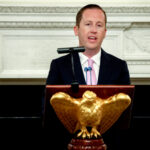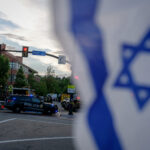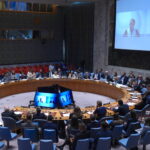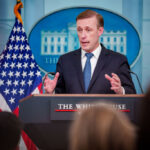The leaders of Georgetown, CUNY and UC Berkeley condemned antisemitism generally at a Capitol Hill hearing, but struggled to criticize antisemitic professors

Win McNamee/Getty Images
Dr. Robert Groves, Interim President of Georgetown University, Dr. Félix Matos Rodríguez, Chancellor of The City University of New York, and Dr. Rich Lyons, Chancellor of the University of California, Berkeley, testify during a House Committee on Education and Workforce hearing in the Rayburn House Office Building on July 15, 2025 in Washington, DC.
When the leaders of Georgetown University, the City University of New York and the University of California, Berkeley sat down on Tuesday morning to testify at a congressional hearing about antisemitism, they clearly came prepared, having learned the lessons of the now-infamous December 2023 hearing with the presidents of Harvard, the University of Pennsylvania and MIT, each of whom refused to outright say that calls for genocide violated their schools’ codes of conduct.
Georgetown interim President Robert Groves, CUNY Chancellor Felix Matos Rodriguez and UC Berkeley Chancellor Rich Lyons were all quick to denounce antisemitism and even anti-Zionism at Tuesday’s House Education and Workforce Committee hearing examining the role of faculty, funding and ideology in campus antisemitism.
But while the university administrators readily criticized antisemitism broadly, they struggled to apply that commitment directly to their field of academia.
Lyons in particular offered a revealing look at the gulf between a university’s stated values and its difficulty in carrying them out.
He was asked to account for the promotion of Ussama Makdisi, a Berkeley history professor who described the Oct. 7, 2023, Hamas terror attacks as “resistance” and later wrote on X that he “could have been one of those who broke the siege on October 7.” Why, Lyons was asked by Reps. Randy Fine (R-FL) and Lisa McClain (R-MI), did Berkeley announce last September that Makdisi had been named the university’s inaugural chair of Palestinian and Arab studies?
Lyons first defended Makdisi: “Ussama Makdisi, Professor Makdisi, is a fine scholar. He was awarded that position from his colleagues based on academic standards,” Lyons said.
Later, when McClain followed Fine’s line of questioning, Lyons went to great lengths to avoid criticizing Makdisi.
“I want to separate the phrase from the person. If I heard some other person —” he said, before McClain cut him off. What, McClain asked, did Lyons think Makdisi meant with his tweet?
For five seconds, Lyons sat in silence.
“I believe it was a celebration of the terrorist attack on Oct. 7,” he replied slowly.
He shared that he had spoken to Makdisi about the social media post. Pressed to share what the conversation was like, Lyons returned to an earlier line: “He’s a fine scholar,” Lyons said.
Lyons, like Matos Rodriguez and Groves, acknowledged that antisemitism exists at his campus. But they all struggled to reckon with what Republican lawmakers alleged was an explosion in antisemitism at each of the three schools after Oct. 7.
“I believe that most Jewish students feel safe on our campus,” Lyons said, though he also said that he knows some do not feel safe. When asked why they may not feel safe, he demurred.
“Well, I think there are Jewish people that don’t feel safe in lots of parts —” he said, cut off again by McClain, who asked him to speak specifically about UC Berkeley.
“I think there is antisemitism in society,” Lyons said, before he was cut off again.
Lyons repeatedly attempted to make the same point: “I do believe that public universities are reflections of society, and I believe the antisemitism in society is present on our campus,” Lyons said. Asked whether the actions that he takes or that his faculty take can influence the campus environment, he said yes. McClain accused him of “avoiding the question,” and asked: Would he commit to act to make sure all Jewish students and all students feel safe?
“I’m committing to striving to reach that goal,” said Lyons.
Each of the university leaders was asked, at different occasions, to account for faculty members who had shared antisemitic or pro-Hamas rhetoric. Matos Rodriguez, the CUNY chancellor, did not deny that the New York City university system employs antisemitic faculty, though he did not specify whether any action would be taken against them.
“We have faculty that might conduct themselves in antisemitic behavior, and we have no tolerance for it, and we’re clear about the expectations to follow all our rules and policies,” Matos Rodriguez said. “If any individual breaks those rules, they will be investigated, and the appropriate disciplinary action will be taken if warranted.”
Presented with the cases of two faculty members who had shared pro-Hamas content on social media, Matos Rodriguez condemned Hamas, but did not say specifically if their rhetoric violated codes of conduct or led to any consequences.
“I have been very clear that Hamas is a horrible terrorist organization, and we have no tolerance at the City University of New York for anyone who would embrace that support of Hamas,” said Matos Rodriguez. “I clearly condemn the statements, and it’s been my testimony here, and our practice, that if any member of the City University community violates our policies and our code of conduct, we will conduct an investigation, and if discipline is warranted, we will take it, and we will not hesitate to do that, and we have done so.”
Groves, Georgetown’s president, shared early in the hearing that the university had taken action against Jonathan Brown, a tenured professor who faced criticism last month for a tweet calling for Iran to conduct a “symbolic strike” on a U.S. military base after Washington struck Iranian nuclear sites. Brown is no longer the chair of the university’s Arabic and Islamic studies program, Groves said, and he has been placed on leave pending an investigation.
Groves, who faced several questions about Georgetown’s ties to Qatar, pledged to commit to disclosing every dollar that Georgetown receives from foreign sources.
At the same time, he stood by Georgetown’s decision to award Sheikha Moza bint Nasser, the mother of the Qatari emir, with the university’s president’s medal in April. Sheikha Moza has a history of incendiary anti-Israel commentary on social media, including several posts praising the Oct. 7 attacks and Hamas leader Yahya Sinwar, who orchestrated the violence. Rep. Mark Harris (R-NC) asked Groves why Georgetown gave her a medal, given those posts.
The medal was awarded because of her “decades-long work for educating, getting access to education, to the poorest children around the world,” Groves said.
“I don’t support that tweet,” he added, when asked if Georgetown’s values include calls for the destruction of Israel. “That tweet is not consistent with Georgetown policy. We honored her for her decades of work in access to education to the poorest children of the world.” Georgetown would not consider revoking the award, he added.
Groves’ stated commitment to transparency about its sources of foreign funding — the university’s 20-year relationship with Qatar is well-documented and oft-criticized — stood in contrast to Lyons’ response to questions about whether he would disclose all foreign funding to Berkeley.
“As a public university, I am not ready to commit to that on the fly. There are different donors to the university who request anonymity,” Lyons said. “What I’d be very, very happy to be very transparent about is exactly what is our process for vetting those things. We say no to a lot of foreign money. I promise you that.”
He would not give an example of foreign money he had rejected.
Democrats at the hearing mostly used their time to criticize President Donald Trump’s approach to higher education, and his funding cuts that are affecting scientific and medical research at top universities. They highlighted his administration’s massive cuts to the Education Department, including at the Office for Civil Rights, the division tasked with investigating civil rights violations — including antisemitism — at American schools and universities.
A recent Middle East Forum report alleges that the school’s Alwaleed Center was established and funded by the terror-linked Safa Network
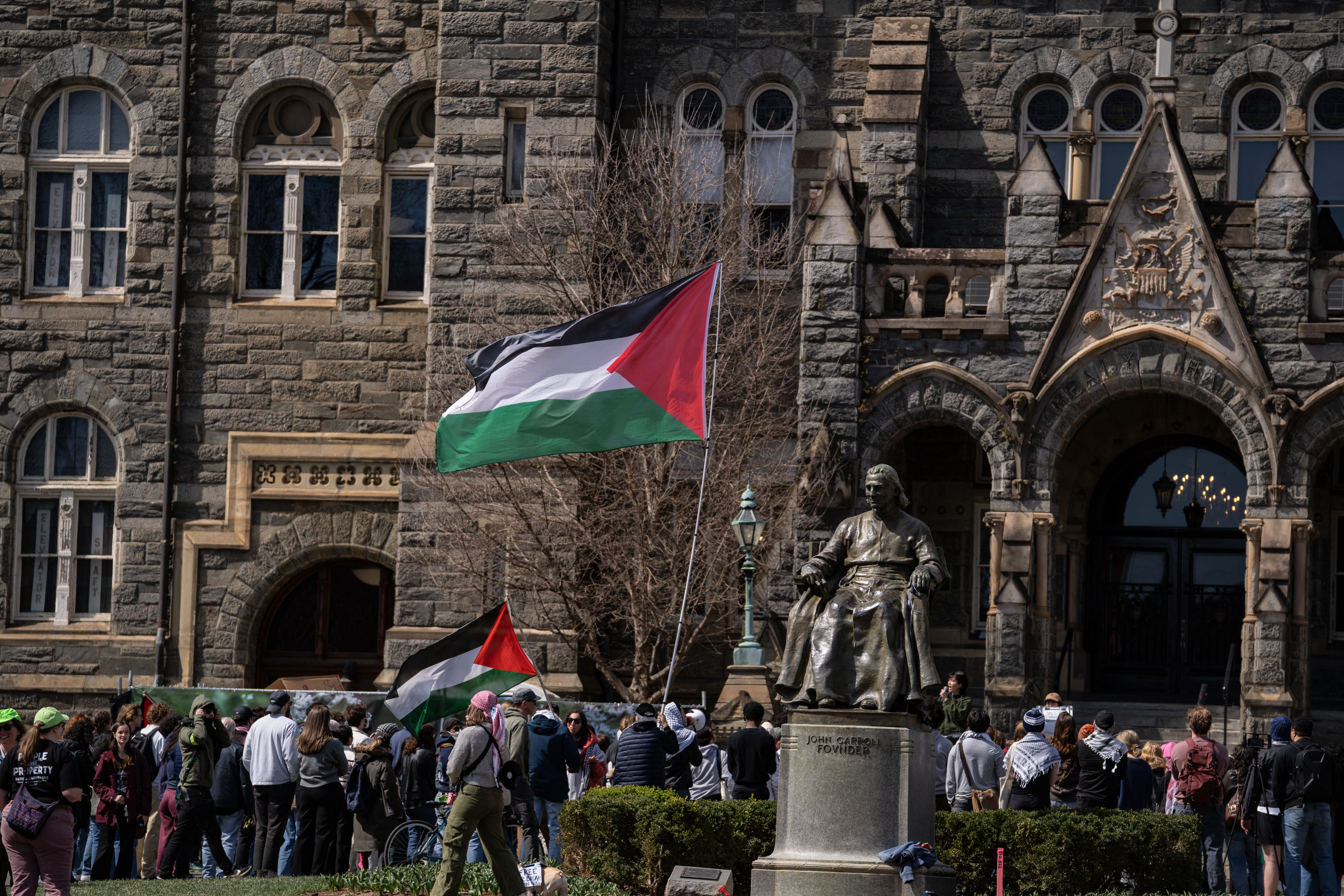
ANDREW THOMAS/Middle Eeast Images/AFP via Getty Images
A protester at Georgetown University waves a Palestinian flag during a protest against ICE, MPD, and other law enforcement agencies on college campuses in Washington, D.C., on March 23, 2025.
As Georgetown University’s interim president, Robert Groves, is set to be questioned about campus antisemitism on Tuesday morning by the House Education and Workforce Committee, the university is contending with several thorny issues centered around the Jesuit school’s Prince Alwaleed Bin Talal Center for Muslim-Christian Understanding, one of the country’s leading centers for Islamic and Middle Eastern studies.
Until now, Georgetown’s handling of campus antisemitism has been largely overlooked by the federal government, compared to other elite schools that have recently faced slashed grants and accreditation threats. But several studies published in the wake of the Oct. 7, 2023, Hamas terrorist attacks have put a renewed spotlight on Georgetown’s Qatar campus and the more than $1 billion from Qatar the school has received.
Earlier this year, Georgetown renewed its contract for its Doha campus for another decade.
Among the unresolved matters that could come up when Groves takes the hot seat is the university’s lack of a disciplinary response to incendiary comments from the center’s chair of Islamic Civilization in the School of Foreign Service, Jonathan Brown, who advocated for Iran to conduct a “symbolic strike” on a U.S. military base. Brown, a tenured professor who has a history of spreading anti-Israel vitriol, is the son-in-law of convicted terror supporter Sami al-Arian.
One day after the U.S. struck three Iranian nuclear facilities last month, Brown posted on X, “I’m not an expert, but I assume Iran could still get a bomb easily. I hope Iran does some symbolic strike on a base, then everyone stops.”
A Georgetown University administrator told Jewish Insider at the time that the school was “appalled” by Brown’s since-deleted tweet and said it was “reviewing this matter to see if further action is warranted.”
On Monday, the administration did not respond to several inquiries from JI asking whether the review is still underway and if further action was taken.
Georgetown’s administration was already under the microscope following its statements made in March supporting Badar Khan Suri, a professor who was detained by federal authorities and alleged to have ties to Hamas.
Sam Westrop, director of the Middle East Forum’s Islamist Watch project, told JI he wants to see the committee question Georgetown over “why it’s acceptable that such a major, prestigious university should be able to embrace a terror-linked partner.”
A recent MEF report, written by Westrop, claims that the Safa Network — a Virginia-based group of charities, businesses, and think tanks run by Islamists previously investigated by federal law enforcement agencies over alleged involvement with Hamas, Palestinian Islamic Jihad and Al-Qaida — established and funded the Alwaleed Center.
“Georgetown in this department, controlled by this network, trains diplomats, civil servants, intelligence agents, law enforcement and other academics who go on to radicalize future generations,” Westrop said. “This is a major failure of higher education to remain impartial and objective. Worst of all, it’s not just domestic. This domestic network is the glue that brought Georgetown into contact with the Qatari, Turkish and Malaysian regimes.”
The center’s founder, John Esposito, who is a professor of religion and international affairs and of Islamic studies at Georgetown, has a history of defending and collaborating with terrorist groups, the Washington Free Beacon reported. Esposito was previously a member of the advisory board of the United Association for Studies and Research, an American think tank founded by future Hamas leader Mousa Abu Marzook and future Hamas spokesman Ahmed Yousef, according to a report by the George Washington University Program on Extremism.
In a statement to JI, Rep. Lisa McClain (R-MI), chair of the Republican conference, said that at the hearing she will “hold university presidents accountable for their troubling silence and inaction in the face of rising hate on campus.”
“It is unacceptable that these institutions have allowed antisemitic incidents to persist without a meaningful response. I will be seeking clear answers on what steps they are taking to ensure intolerance has no place in our universities — including their faculty and student organizations,” McClain said.
Officials from the University of California, Berkeley and the City University of New York are also expected to be probed over their handling of campus antisemitism at the hearing on Capitol Hill.


























































